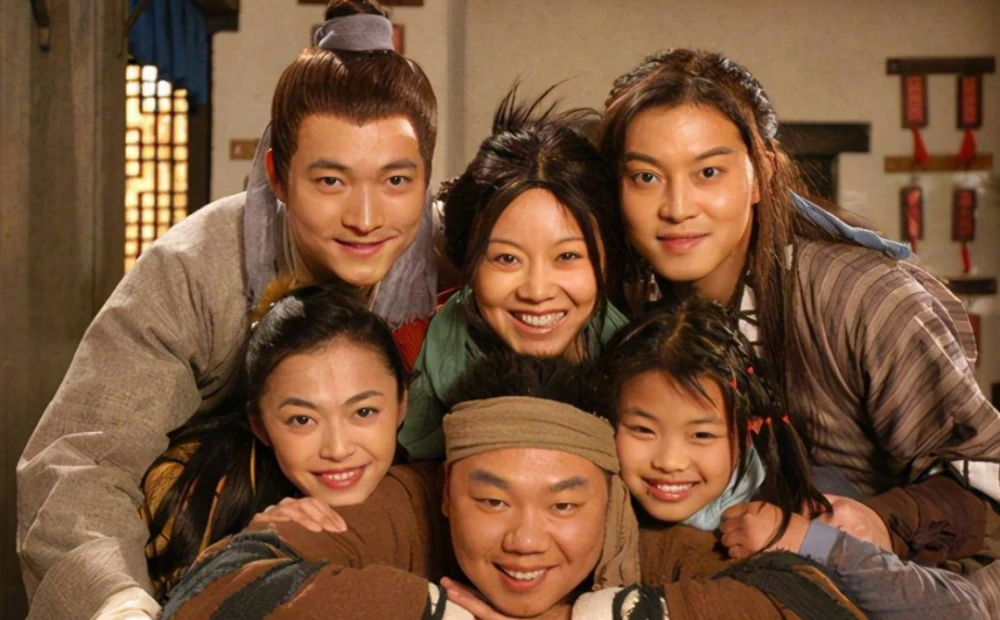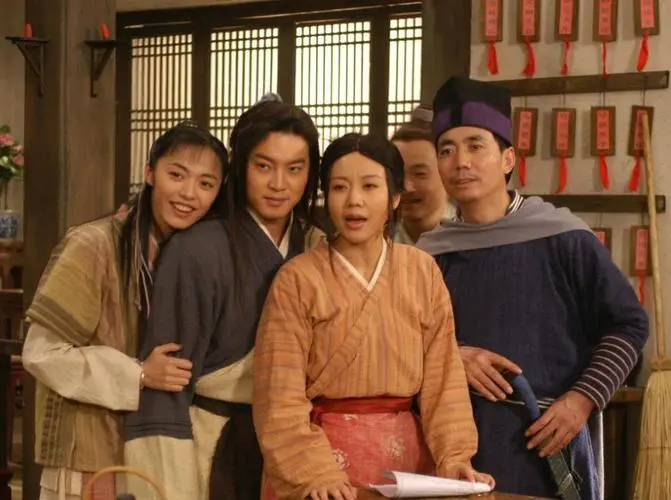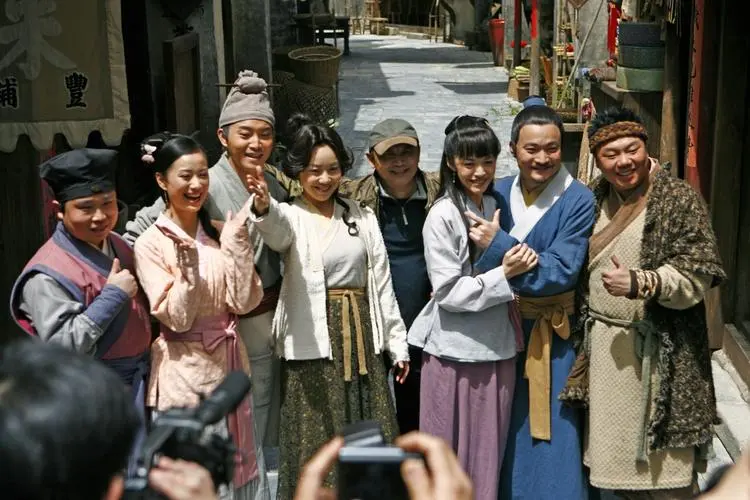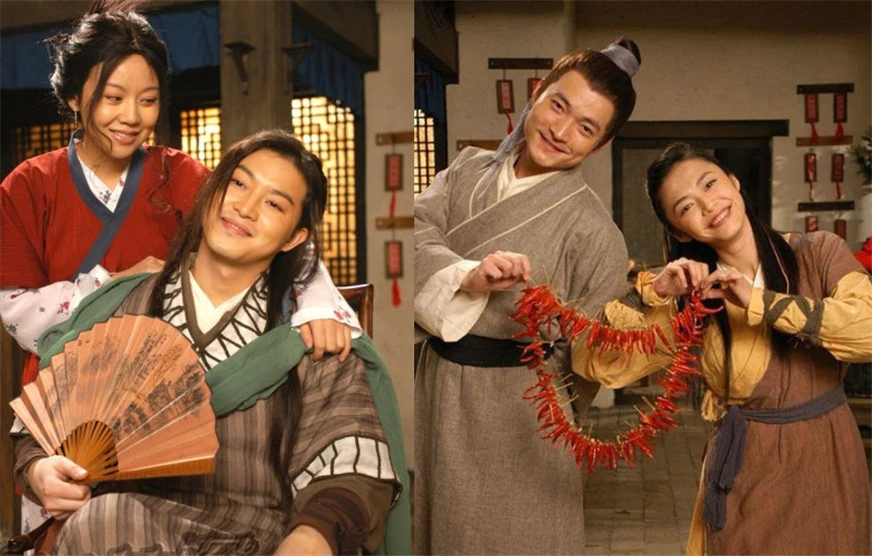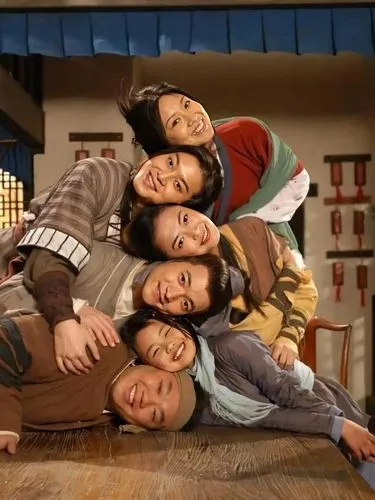“My Own Swordsman” (Chinese: 武林外传) stands as a landmark in the landscape of Chinese television, a chapter-based period sitcom that masterfully combines martial arts, comedy, and social commentary. Helmed by director Shang Jing, the show boasts an ensemble cast including Yan Ni, Sha Yi, Yao Chen, Yu En Tai, Jiang Chao, Wang Shasha, and more, bringing to life a tale that captured the hearts of millions.
A Historical Debut and Enduring Appeal On January 2, 2006, My Own Swordsman premiered on China Central Television’s CCTV-8 in the coveted prime-time slot. Set against the backdrop of a fictitious Ming Dynasty during the Wanli era, the story unfolds in the quaint town of Seven Heroes Town. Within the walls of the Tongfu Inn, the show introduces viewers to a colorful cast of characters whose lives interweave in uproarious and heartfelt scenarios.
The masterful execution of the show’s comedic elements, combined with its endearing characters and astute social commentary, propelled My Own Swordsman to instant acclaim. Swiftly becoming a national sensation, it sparked waves of laughter and resonated with audiences across the spectrum. The show’s appeal extended beyond mainland China, with its debut on TVB in Hong Kong and Eight Digital Television in Taiwan, solidifying its status as a cross-cultural hit.
Characters: An Eclectic Ensemble The series’ characters are a tapestry of personalities, each contributing their unique quirks and dilemmas to the narrative. At the helm is Tong Xiangyu (Yan Ni), the shrewd and compassionate innkeeper of the Tongfu Inn, navigating the challenges of life with wit and kindness. Bai Zhan Tang (Sha Yi), a reformed legendary thief, wrestles with his past while seeking a fresh start.
Guo Fu Rong (Yao Chen) defies stereotypes, embodying a fierce martial arts enthusiast breaking boundaries in the male-dominated world of heroism. Lü Qinghou (Yu En Tai) personifies the scholar, armed with bookish wisdom yet eager to find his place in the martial landscape. Li Da Zui (Jiang Chao), the talented chef turned aspiring hero, adds a layer of culinary comedy to the mix. Finally, Mo Xiao Bei (Wang Shasha), a young girl thrust into leadership roles, navigates her newfound responsibilities with charm and innocence.
A Satirical Spotlight My Own Swordsman goes beyond comedy, weaving in astute social commentary and satire. The show’s creators seize the opportunity to reflect on the martial arts genre’s glorification of violence, concurrently mirroring contemporary societal issues. Its brilliance lies in how it combines traditional elements with modern themes, humorously subverting conventions while presenting a thought-provoking narrative.
The genius of My Own Swordsman is that it doesn’t merely entertain—it challenges viewers to reflect on the pervasive influence of martial arts culture and the implications of its portrayal in media. By ingeniously merging satire and comedy, the show both celebrates and critiques the conventions of its genre, inviting its audience to contemplate the dynamics of power, heroism, and morality.
Triumphs and Awards The show’s unprecedented success did not go unnoticed, as it garnered several awards and accolades. Recognitions like the “New Weekly’s Top 10 Innovative TV Person” and the “Annual Period Drama” at the Sina Web Awards underscored its impact. My Own Swordsman wasn’t just a sitcom; it was a cultural phenomenon, blending humor, wit, and societal reflection in a way that resonated deeply with its audience.
The sitcom’s triumph also defied traditional viewing patterns. It achieved record-breaking ratings that transcended demographics, captivating viewers of all ages. By challenging the norms of both martial arts storytelling and comedy, My Own Swordsman secured its place as a trailblazer that left a lasting imprint on Chinese television.
Legacy and Beyond My Own Swordsman remains a testament to the power of innovative storytelling. Its pioneering fusion of genres, along with its biting satire and poignant themes, left an indelible mark on Chinese television. The show’s enduring popularity and influence attest to its ability to bridge generations, bringing laughter and introspection to viewers from all walks of life.
In an industry where only a few productions achieve cult status, My Own Swordsman stands tall as an emblematic piece of Chinese television history—a tale of laughter, growth, and a unique blend of martial arts and comedy that will forever have a place in the hearts of its audience.
